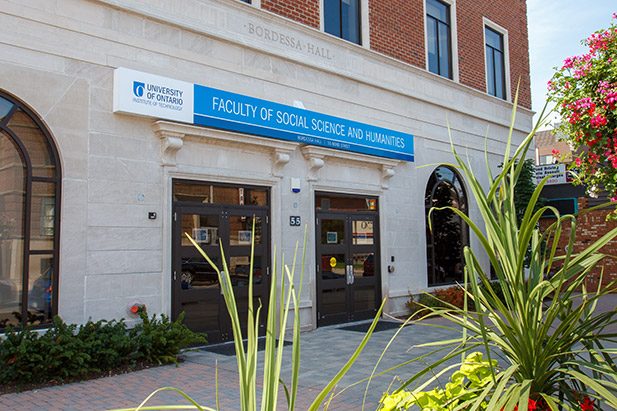New research group countering rise in global hatred and intolerance
University launches Centre on Hate, Bias and Extremism
June 18, 2018

Many political leaders have said it time and again: “Those who fail to learn from history are condemned to repeat it.”
History teaches us that the world has rarely, if ever, been completely free of some form of conflict. Humans have always been capable of thinking. But the ability or right to express opinion or dissenting ideas in a free and open manner varies between nations, societies and religions.
Few would argue today’s world is fully harmonious. Around the world, issues of inclusion and equity, along lines of race, ethnicity, religion, gender, sexual orientation and disability, often spark intense debate. In some corners, the debate devolves into instances of discrimination, exclusion and violence.
With this context in mind, the University of Ontario Institute of Technology has created the Centre on Hate, Bias and Extremism (CHBE). The CHBE’s mission is to assert leadership in providing evidence-based research to inform policies and practices that promote a just and equitable society for all.
Led by Barbara Perry, PhD, Professor, Faculty of Social Science and Humanities (FSSH), the CHBE will advance awareness, understanding and prevention of hate, bias and extremism. Dr. Perry is internationally recognized as a leading scholar on hate crime and right-wing extremism.
The CHBE connects the university’s broad interdisciplinary expertise on social justice research. The group has also established key links with local, national and international non-governmental organizations, as well as municipal, provincial and federal policymakers.
“There’s a lot of work ahead of us, no question,” says Dr. Perry. “Whether it is face-to-face or online radicalization, we know hatred and extremism are learned behaviours. The CHBE will build up research, share new knowledge and be a go-to source for policy developers seeking data, guidance and advice. We’re here to support and promote community engagement and awareness, but also to be agents of change through program development.”
In light of the recent approval of the faculty’s PhD in Criminology and Social Justice, the CHBE will also help draw more undergraduate, graduate and post-doctoral candidates to the university.
CHBE Steering Committee
- Barbara Perry, PhD (Professor, FSSH): Director
- Scott Aquanno, PhD (Associate Teaching Professor, FSSH): Economics of social exclusion, emphasizing the political and institutional impact of neoliberal globalization.
- Kimberley Clow, PhD (Associate Professor, FSSH): Wrongful conviction; incidences of hate, stigmatization and blatant discrimination; stereotypes encountered in occupations dominated by a particular gender.
- Aziz Douai, PhD (Associate Professor, FSSH): News media and global conflicts, propaganda, new media and activism, and news construction of crime.
- Jennifer Laffier, PhD (Senior Lecturer, Faculty of Education): Issues of bullying; victim support; implementation of anti-bullying programs in Canadian schools.
- Olga Marques, PhD (Assistant Professor, FSSH): The construction, policing and regulation of gendered and raced bodies; representations of Indigenous criminality, victimization and protest.
- Tanner Mirrlees, PhD (Assistant Professor, FSSH): Convergence of right-wing extremism and the technological affordances of social media sites to individuals and groups,



